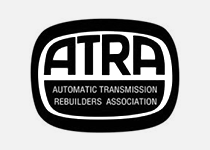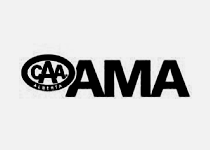LA Times Article
March 10, 2004
Checked your car’s other dipstick?
As transmissions have grown more complex, so has the array of fluids. Using the wrong one could lead to ruin.
By Ralph Vartabedian, Times Staff Writer.
A new car’s styling may be clean, the dashboard uncluttered and the suspension crisp — all the buzzwords used by auto makers to convince consumers that cars are getting less complicated.
But somebody forgot to discuss this strategy with the engineers who design automatic transmissions and specify the specialized fluids needed by these remarkably complex gearboxes.
Owners of cars produced in the last 10 years are supposed to know the difference between Mercon V and Mercon or Mopar + 3 and Mopar + 2 or Dextron III and Dextron II or any number of specialized fluids required by auto makers.
If they don’t know, then their mechanics are supposed to know. In the view of engineers, mechanics are supposed to know everything. Most of the time, they are thinking about the $100,000-per-year technicians at dealerships, not guys in the lube pit at the express oil change shops.
Lance Wiggins, technical director at the Automatic Transmission Rebuilders Assn., said mechanics often put the wrong fluid in newer transmissions, causing serious problems thousands of miles later.
If you use the wrong fluid, you could end up looking at a very expensive transmission overhaul or replacement, which can easily reach $2,000. That’s a lot to pay for mixing up Mercon and Dextron.
Some manufacturers have four different fluids specified just for their own models. And a handful of manufacturers insist that only their own house brands will suffice.
“Every transmission builder these days has his own fluid,” said Jack Zakarian, a lubrication engineer at Chevron Texaco’s research center in the Bay Area suburb of Richmond. “They are going crazy. Every time they come up with a new transmission, they come up with a new fluid.”
A good repair shop should have up-to-date charts that show which fluids to use. Or they should subscribe to an online information service, such as ALLDATA, which can provide instant information about fluids.
Perhaps the most reliable source of information for the correct fluid is the owner’s manual, though few car owners ever bother to pore through them. All too often, these books are cluttered with useless information. On some vehicles, the correct type of transmission fluid is embossed on the transmission dipstick.
The situation obviously raises the question of why the fluid world is getting more complex. The answer: As transmissions get smaller and lighter, the fluids are called on to do more.
Compared with engine oil, transmission fluid is more complex and has many more jobs to perform. It must provide most of the cooling for the transmission, operate as a hydraulic fluid for valves, lubricate gears and rotating shafts, and act as a friction agent for belts and clutches.
The new fluids tend to be mainly synthetic formulations. Mercon V, for example, is a synthetic fluid that is more slippery than older Mercon formulations.
If you put an older generation of Mercon into a newer transmission by mistake, you run the risk of damaging the internal clutches, Wiggins said. A damaged clutch can cause a car to shudder when accelerating from a dead stop.
All these fluids have caused some headaches for the lubrication industry.
Ford and General Motors usually put out specifications for their fluids so that lubrication makers can certify that their products meet the manufacturers’ requirements. Then Ford and GM issue licenses to oil makers that allow them to certify that their fluids will meet the warranty requirements for the transmissions.
But Chrysler and many foreign automakers refuse to certify any fluids but their own brand, forcing consumers to buy proprietary fluids at typically higher costs. Mopar + 2 and Mopar + 3 are Chrysler’s brands, but independent oil companies cannot get Chrysler certification.
Before 1997, Chrysler advised its customers that it could use Dextron, the General Motors fluid, in its transmission, Zakarian said. A group of independent oil makers has started a legal fight in recent months, charging that the company is restraining trade.
Chevron Texaco puts out a Chrysler product that it says is safe to use, but it warns customers that Chrysler has not certified the fluid.
“Dealers love to say that you used the wrong fluid just so you don’t get the warranty if you have a problem,” Zakarian said.
Increasingly, auto makers are producing transmissions that are supposed to be filled for life, another development that transmission experts consider misguided. Most transmission experts advise car owners to disregard the recommendations to change transmission fluid every 100,000 miles. When a transmission has a problem, it usually has to be pulled out of the car and be completely rebuilt. So a little extra insurance with fresh fluid can help prevent a costly repair bill. Many experts change their fluid every 30,000 to 50,000 miles.
Chevron Texaco offers a consumer hotline, 1-800-LUBETEK.
Ralph Vartabedian can be reached at ralph.vartabedian@latimes.com.
If you want other stories on this topic, search the Archives at latimes.com/archives.





